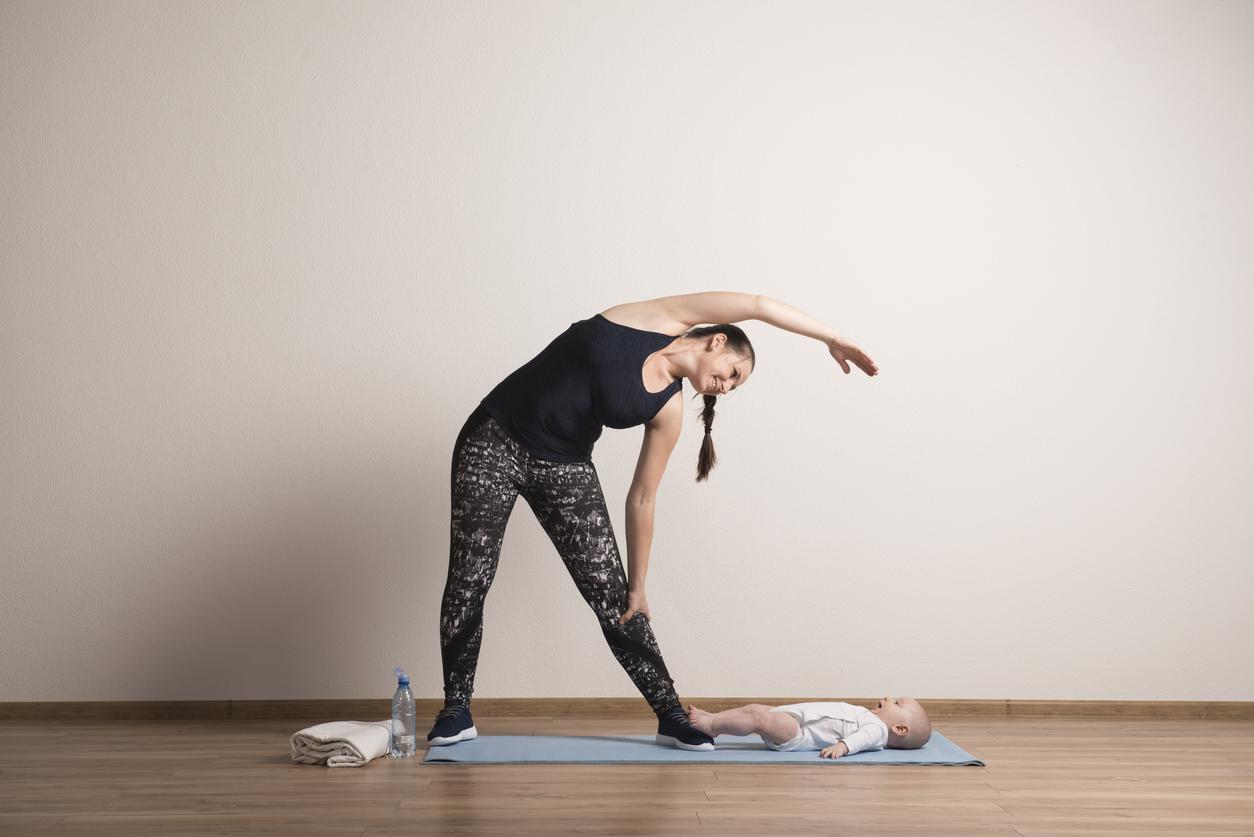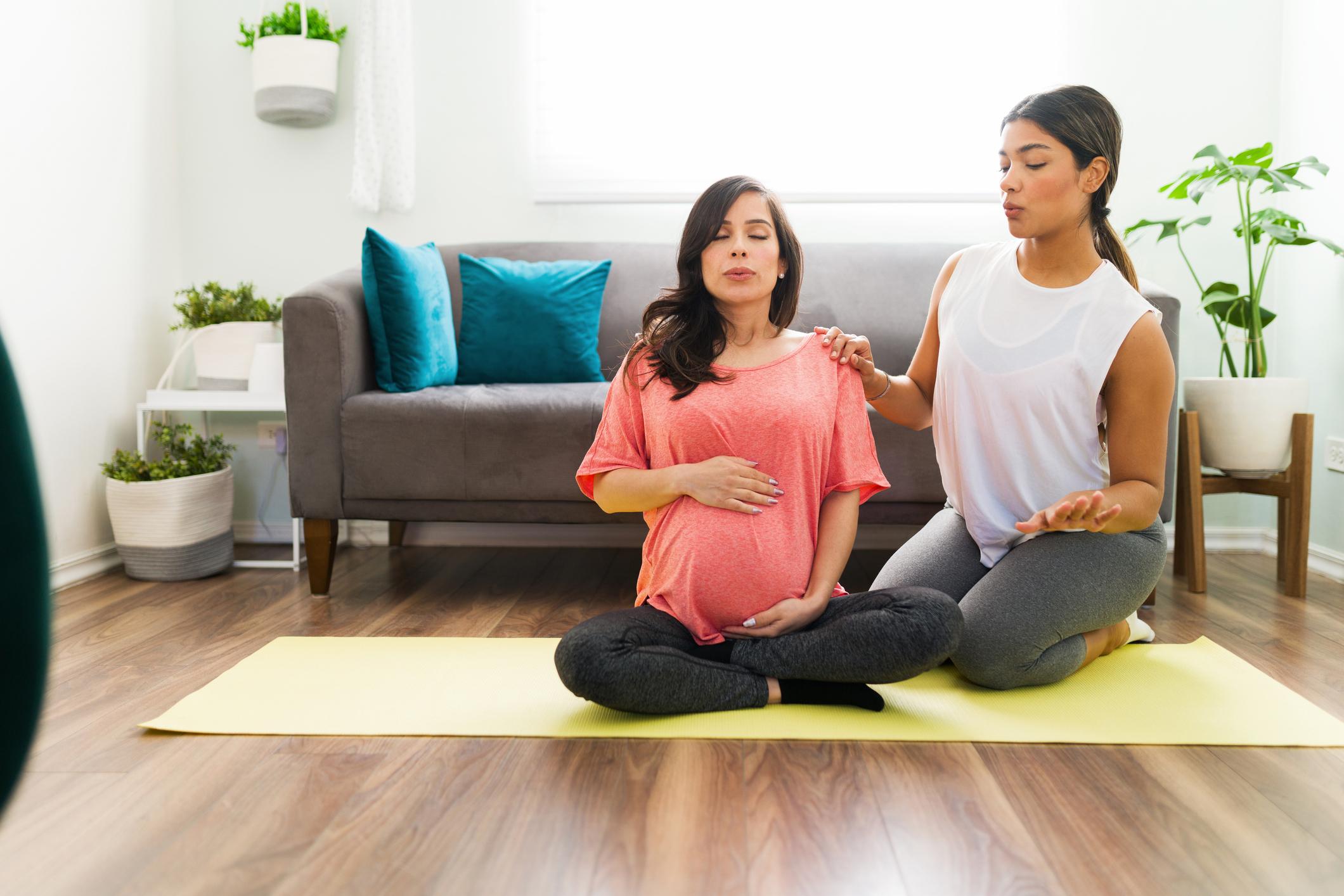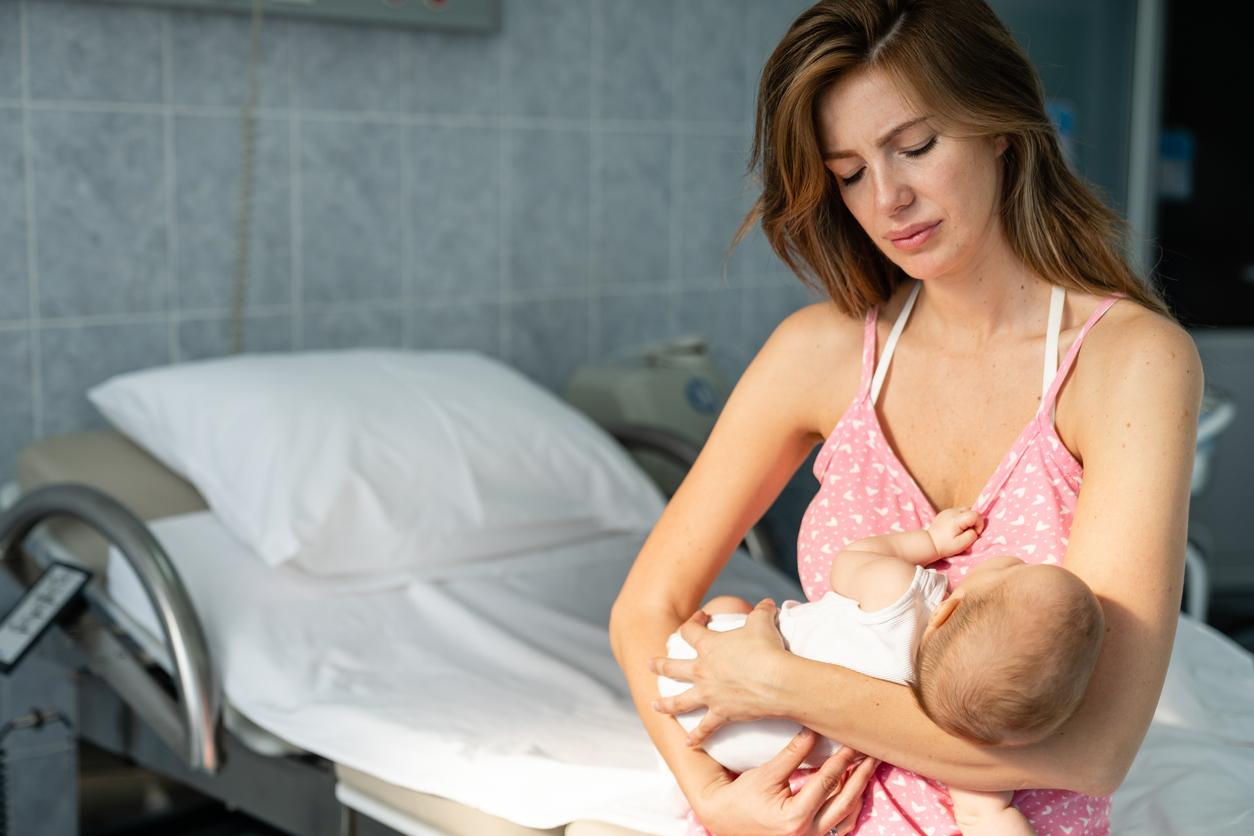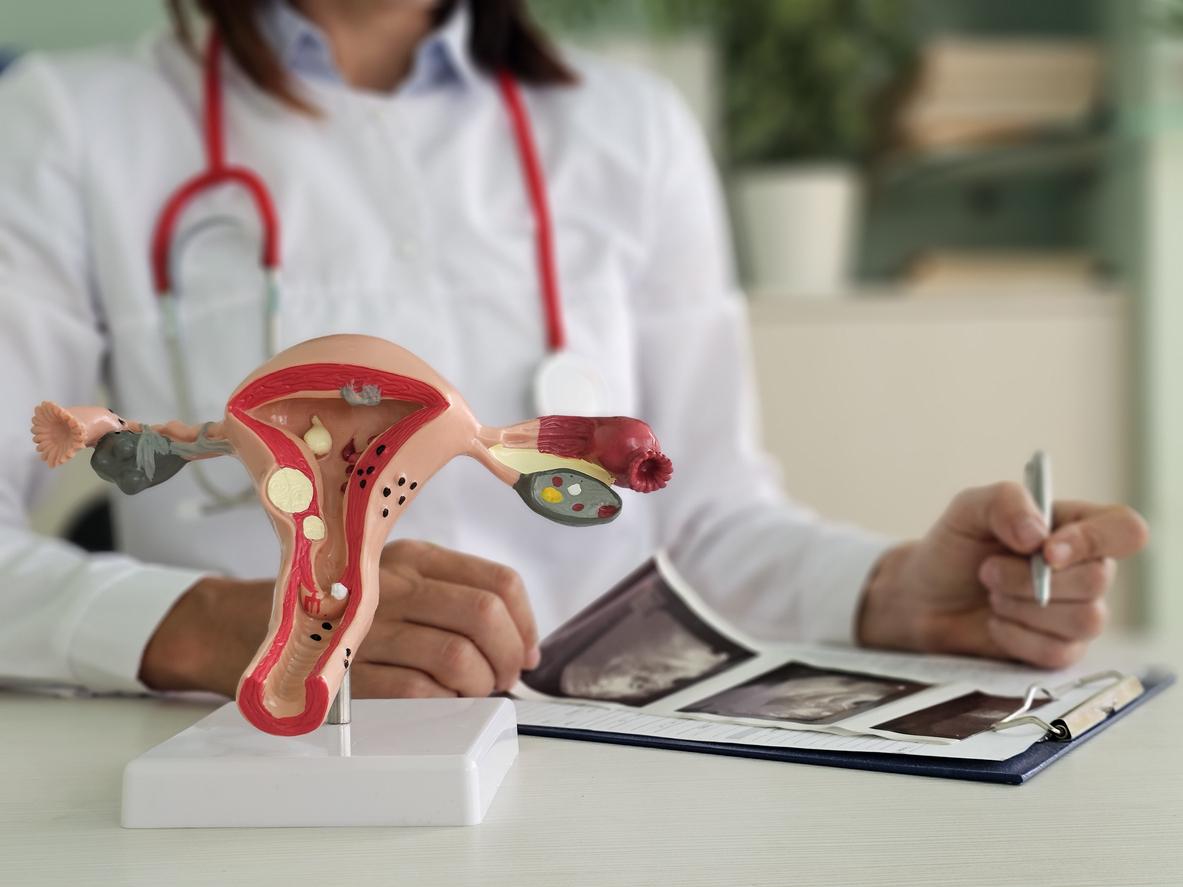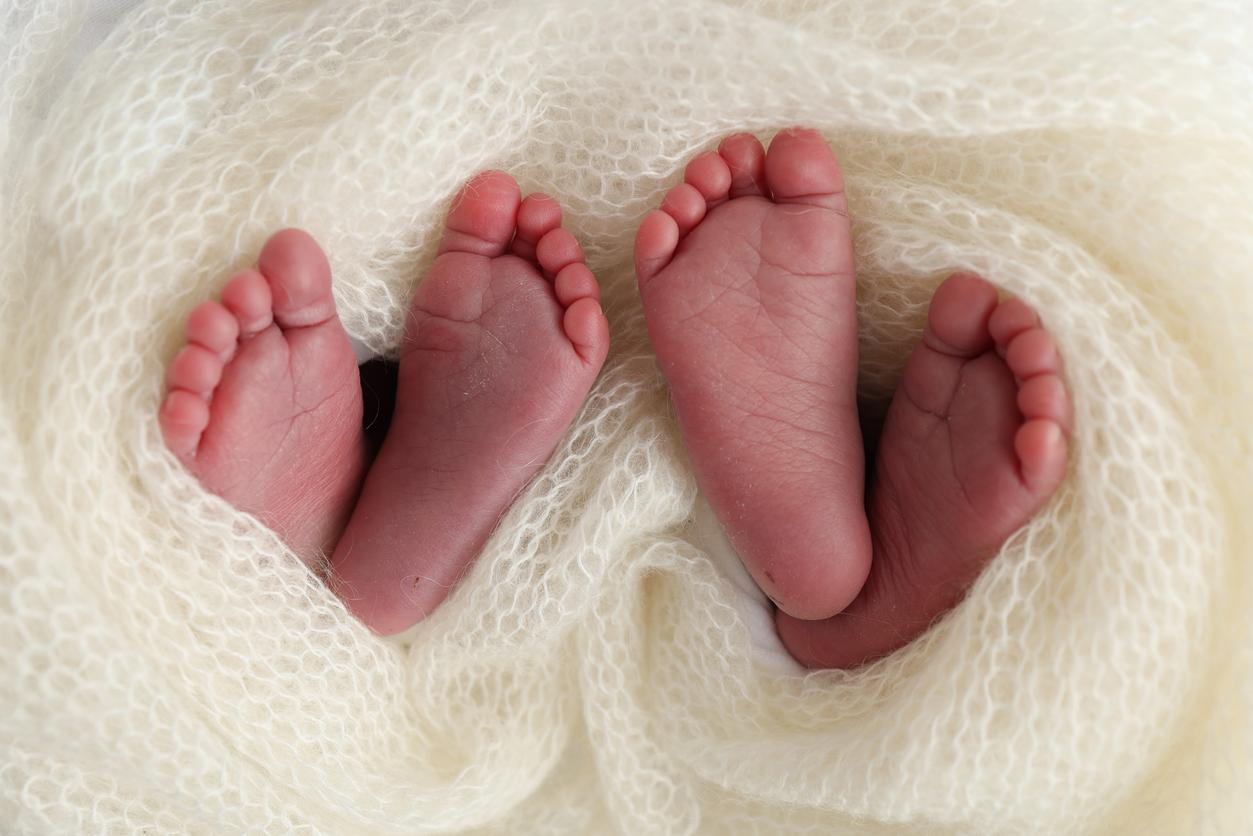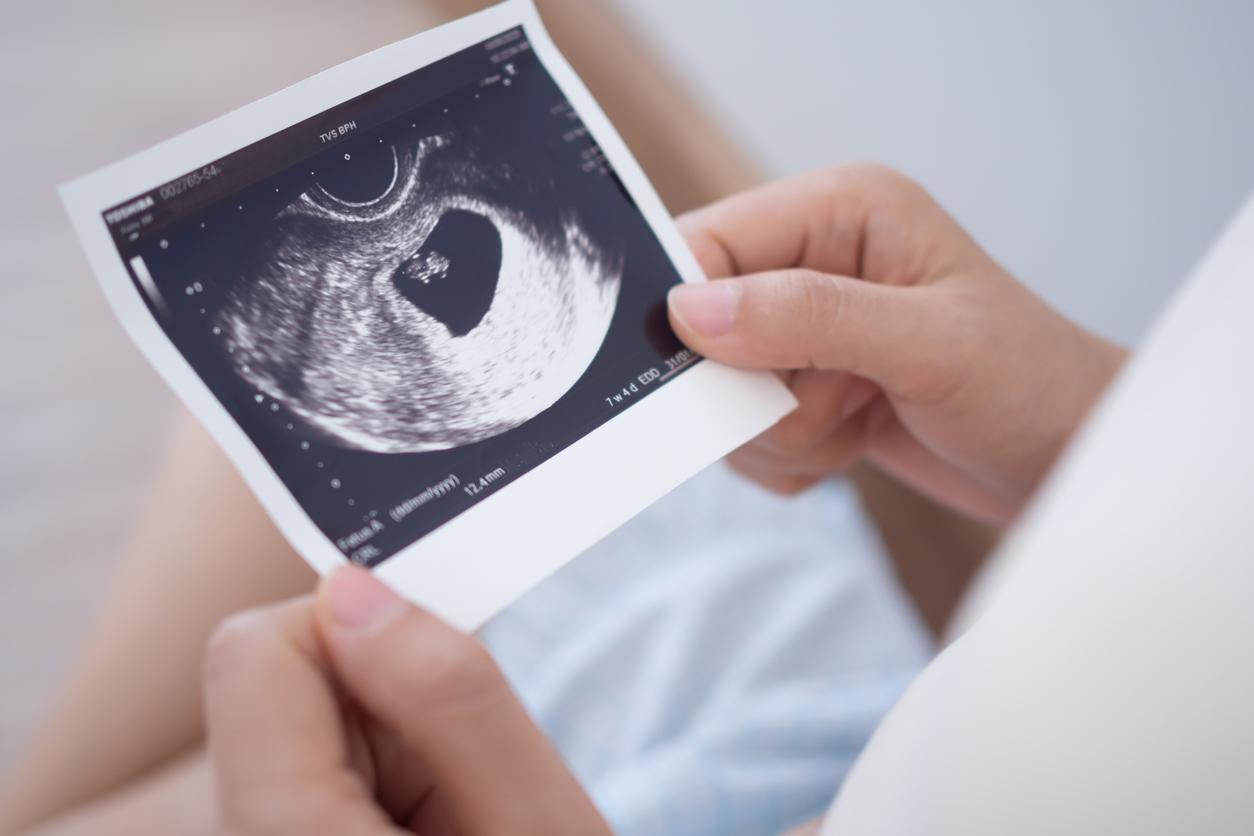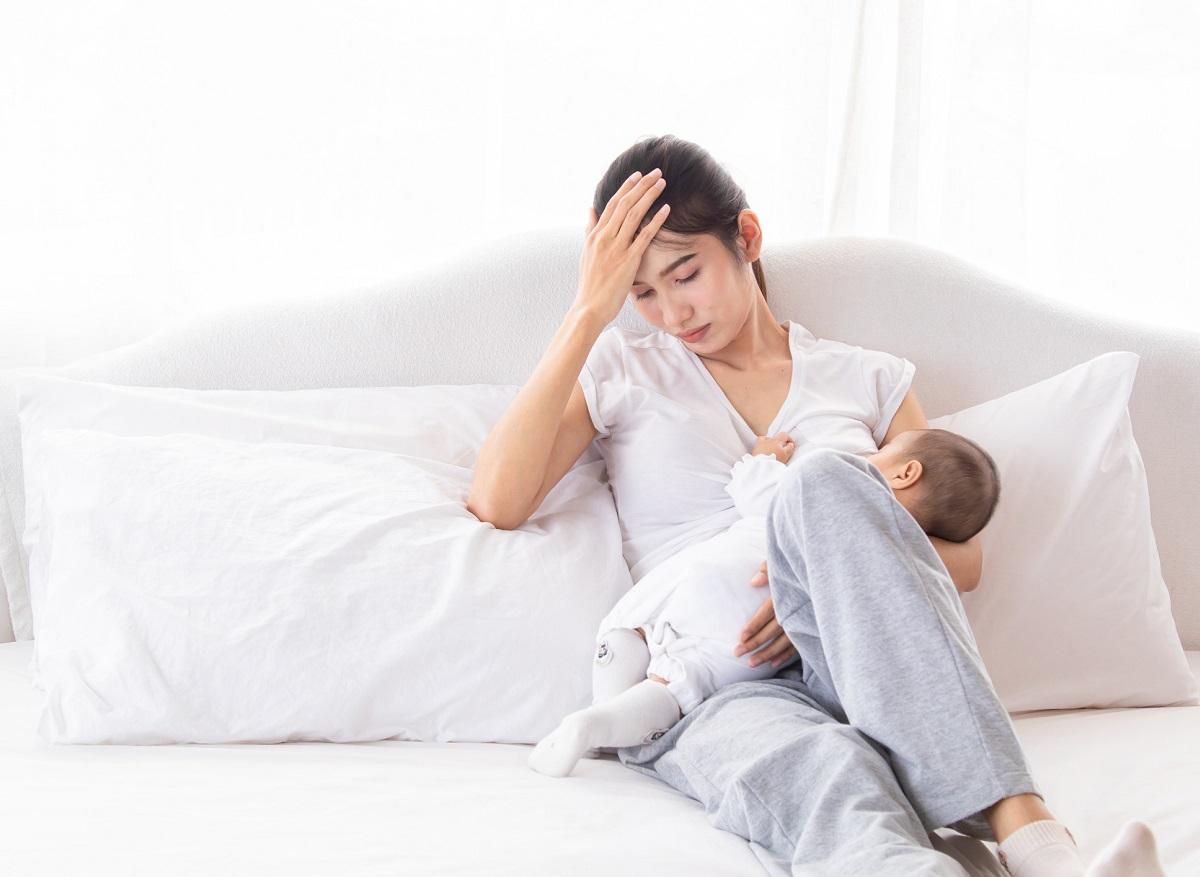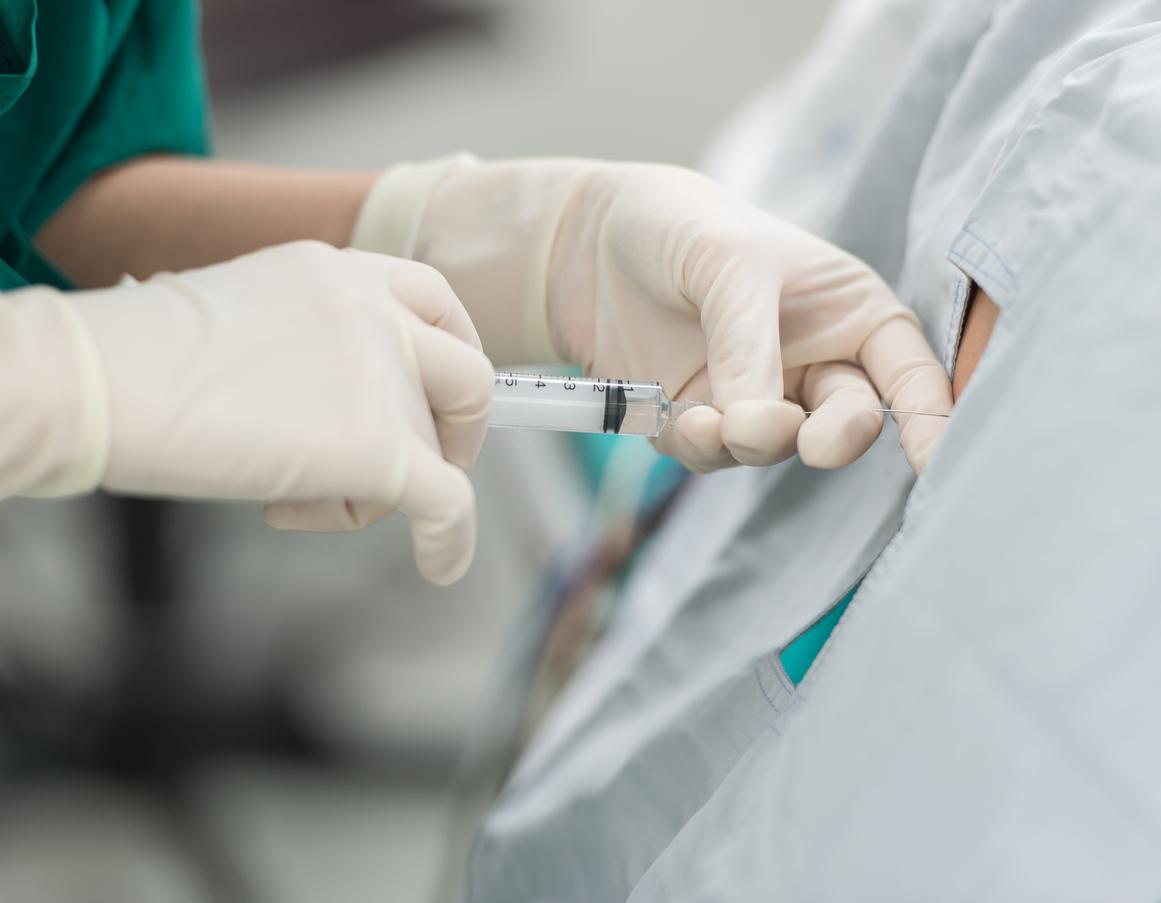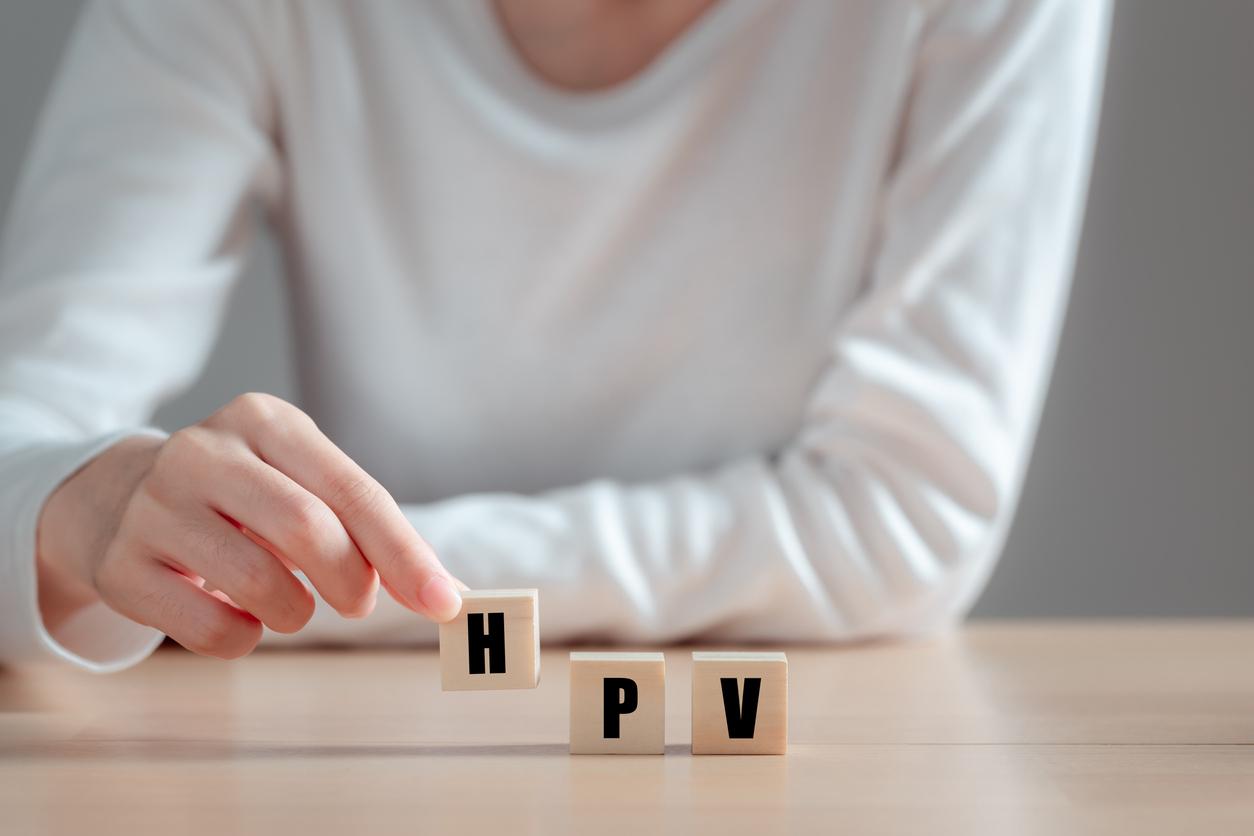Sometimes a source of concern for patients, the retroverted uterus is nevertheless an anatomical variant with no consequences for fertility, pregnancy or childbirth.

- In the majority of women, the uterus is anteverted, that is, it is forward, towards the bladder, but in some cases, it tilts backward, towards of the colon and rectum. This is then a “retroverted” uterus.
- Patients with a retroverted uterus may experience pain and cramping in the back, or even the anus, instead of the stomach during menstruation.
- Depending on sexual position, uterine retroversion can sometimes cause pain during intimate intercourse (dyspareunia).
Shaped like an inverted pepper, the uterus is the main organ of the female reproductive system. The narrowest part is the cervix. In the majority of cases, the uterus and cervix have a forward position, towards the bladder. In some women, this organ tilts backwards, toward the colon and rectum. We then speak of a “retroverted” uterus.
Nearly 25% of women are affected by uterine retroversion. Although this term can be frightening, it is nevertheless only a simple anatomical variant, which is without danger for the health of patients.
Are periods more painful with a retroverted uterus?
Fertility problems, periods and more painful sexual intercourse… There are many concerns surrounding the retroverted uterus. “The question of the retroverted uterus comes up a lot in consultation (…) Because it is a frequent anatomical variation affecting a fifth of people who have a uterus and it is in no way pathological, doctors tend to brush the subject under the rug. However, patients, in a process of self-exploration of their body, have the right to know and understand the specificities of their anatomy”indicated Doctor Laura Berlingo, obstetrician-gynecologist, at Slate.
The arrival of menstruation can be associated with dysmenorrhea, in other words pelvic and lower back pain. A difference in the location of pain can be observed in women with uterine retroversion. Patients with a retroverted uterus may experience period-related pain and cramps in the back, or even the anus, instead of the stomach for women with an anteverted uterus.
As noted by Dr. Laura Berlingo, retroversion of the uterus does not cause more significant pain during menstruation. In case of major pain, pathologies such as endometriosis, fibroids or pelvic congestion syndrome may be suspected. “We must look for the causes of the pain and not attribute everything to the retroversion of the uterus”, she pointed out.
Retroverted uterus: what are the consequences for fertility and pregnancy?
Women who want to have children can be reassured: a retroverted uterus has no impact on conception. It is also possible to use medically assisted procreation (MAP) techniques, such as in vitro fertilization (IVF) or artificial insemination, by having uterine retroversion. “Retroversion of the uterus does not pose a problem during pregnancy and childbirth either.”added Doctor Laura Berlingo.
Concerning sexuality, uterine retroversion can sometimes cause pain during intimate intercourse (dyspareunia), particularly if the penis touches the bottom of the vagina or the cervix during penetration. To prevent them, it is sometimes recommended to avoid positions where penetration is deeper such as doggy style. Alternatively, the couple can favor missionary or spooning. “It is, however, difficult to assert that dyspareunia is caused by retroversion of the uterus, since many women are subject to it, even with an anteverted uterus”declared Professor Philippe Deruelle, gynecologist-obstetrician, at Health Magazine.










